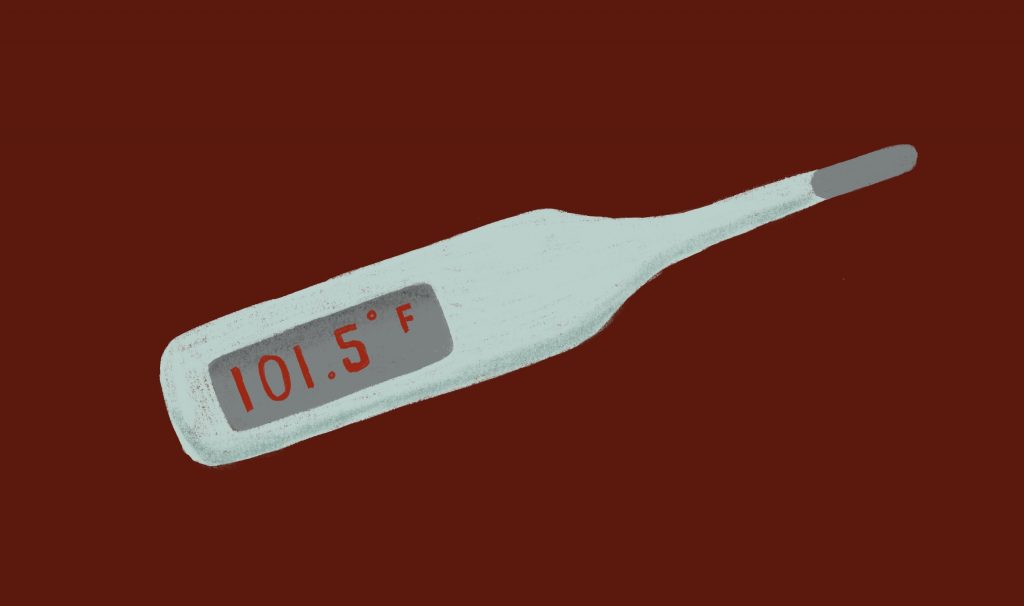
As finals week approaches, flu season is underway in Broome County.
According to the New York State (NYS) Flu Tracker, as of the week of Nov. 20, 231 total cases of influenza type A have been confirmed in Broome County, a 76 percent increase from the week of Nov. 13. There have been 27,171 total confirmed cases in New York state, compared to only 1,137 cases at the same time last year.
Chelsea Reome-Nedlik, a public health educator for the Broome County Health Department, encouraged students to receive their flu shots, as large numbers of flu-related hospitalizations can overwhelm hospitals’ ability to care for other health issues.
“It’s not too late to get a flu shot if you haven’t already,” Reome-Nedlik wrote in an email. “This season is off to an early and strong start — and a flu shot is your best defense against the flu. Additionally, stay home if you’re feeling sick, avoid contact with sick people, wash your hands and consider masking in public if you’re living in or visiting an area with a lot of flu cases.”
The Decker Student Health Services Center’s (DSHSC) Flu Clinic website states that influenza is thought to be contracted through exposure to respiratory droplets from those who have it. The center encourages students and staff to reduce their risk of spreading or catching the flu by getting the flu shot, washing their hands regularly, avoiding close proximity to people who are sick, covering their mouth when coughing or sneezing and disinfecting surfaces that are touched often.
Some students believe university conditions make avoiding illnesses such as the flu difficult. Jun Na Peng, a senior majoring in psychology, described how although she managed to avoid illness throughout middle school and high school, upon arriving on-campus she has contracted an illness at least once every semester.
“I think the nature of living with other students who are told to quarantine in their dorms — given that they test negative [for COVID-19] — [makes] their roommates much more susceptible to catching whatever illness [they’ve] got,” Peng said. “And — last thing — being in 400-plus people psychology lectures, where people are constantly coughing and spreading germs around to literally hundreds of other people, doesn’t help the situation either.”
Those who are feeling sick or have the flu are encouraged to isolate, only leaving home for medical attention, until their temperature has dropped below 100 degrees for 24 hours, according to the DSHSC Flu Clinic website. Students experiencing flu-like symptoms can make an appointment for a check-up with the DSHSC through the student health patient portal.
Andy Getzow, a sophomore majoring in computer science, said that although he has not personally seen much sickness on campus, he still believes taking preventative measures against the flu is important.
“I always try to get a flu vaccine — it’s free at the school or apparently you can get it at the same time as the [COVID-19] vaccine at like CVS,” Getzow said. “There’s no personal reason for me not to get the flu vaccine. I also had the flu once and it was really really bad. I was out for like a full month, it’s probably the most sick I’ve ever been.”
Students are able to sign up for a free flu vaccination through DSHSC, accessible through the student health patient portal. Faculty, staff and community members can also use the VaccineFinder tool on Vaccines.gov to find and book appointments to receive the flu vaccination in places such as CVS and Walgreens in Broome County.
Kerry McBrearty, a medical secretary with United Health Service (UHS), encouraged students to be aware of sickness in their environment and, accordingly, make the appropriate medical choices.
“We all need to take responsibility for educating ourselves and consult our doctors on the options available to us,” McBrearty said. “If we all start to take steps to protect ourselves we’ll protect each other as well.”


